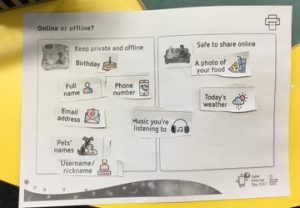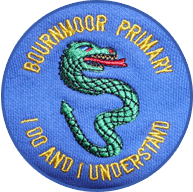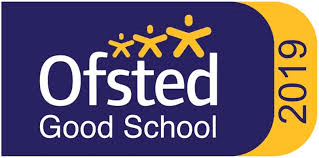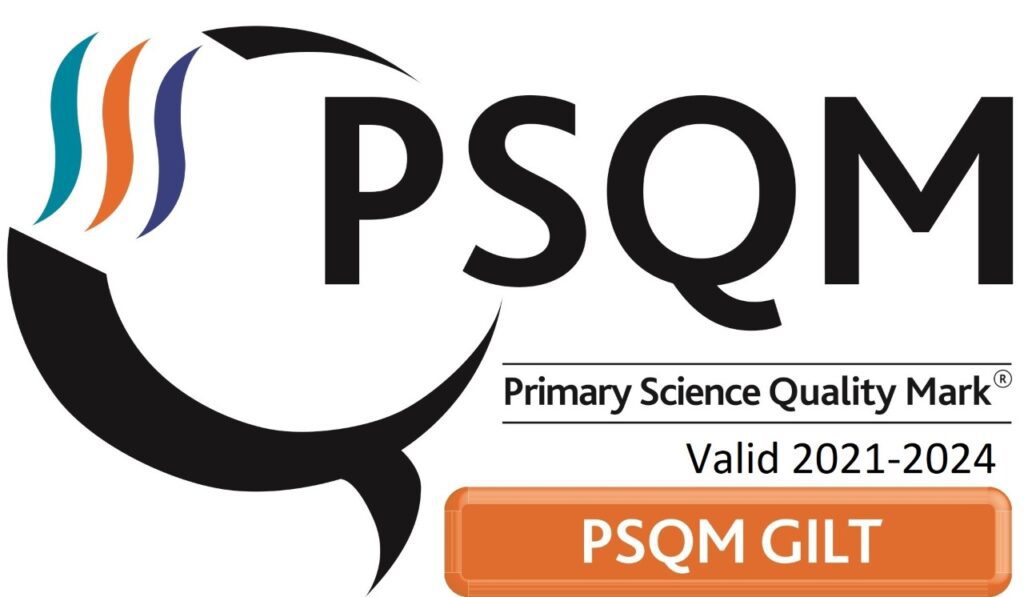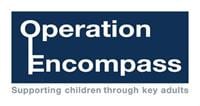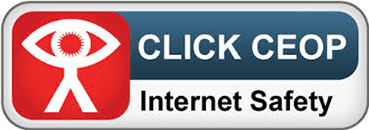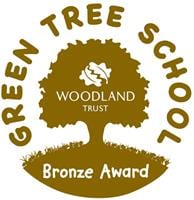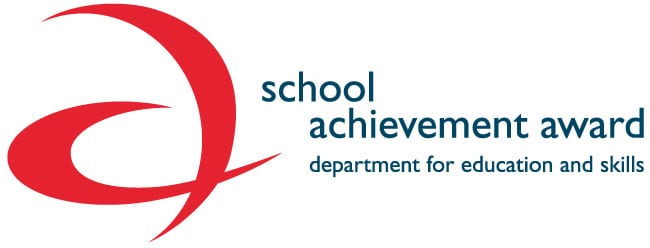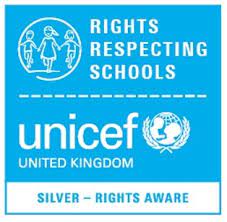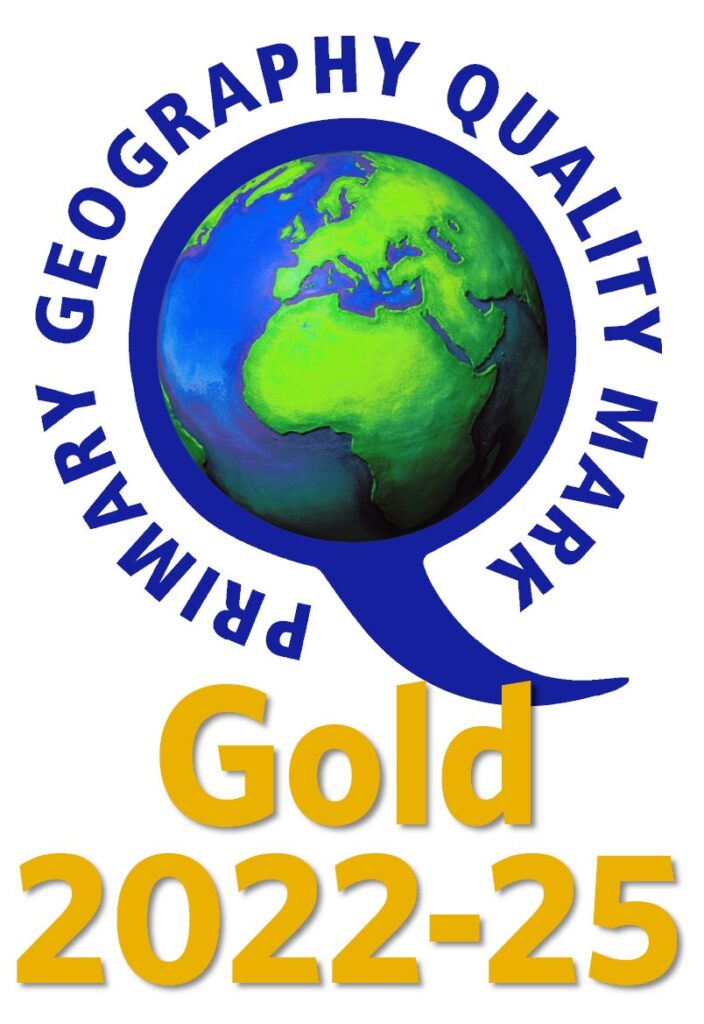Computing at Bournmoor Primary School
The National Curriculum for Computing aims to ensure that all children:
- can understand and apply the fundamental principles and concepts of computer science, including abstraction, logic, algorithms and data representation
- can analyse problems in computational terms, and have repeated practical experience of writing computer programs in order to solve such problems
- can evaluate and apply information technology, including new or unfamiliar technologies, analytically to solve problems
- are responsible, competent, confident and creative users of information and communication technology.
- by the end of each key stage, pupils are expected to know, apply and understand the matters, skills and processes specified in the relevant programme of study.
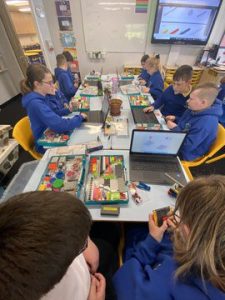
Planning and organisation of the subject
We have a programme of study which supports the cross curricular elements of each year group, whilst still maintaining a focus on pure Computing sessions that can match the objectives of Computing, Digital Literacy and ICT. Children have access to a range of computing resources to develop their knowledge and skills and these are available across the school. Staff teach computing with their mixed age class using the planning and resources from Teach Computing.
Teaching styles and strategies
Children are encouraged to make clear links between their daily lives and their personal use of technology with the content of lessons delivered in school. When homework tasks are set for Computing we aim to inspire children to think and search for ways they can include computing in their submissions. In order to match the key objectives from the curriculum, children are encouraged to experience a range of computing sessions delivered by teachers and external partners. Robotics, the design of code, debugging and understanding of algorithms are all taught across KS2 (including with an external partner) and this is built into the KS1 curriculum plans; for example, the use of Bee Bots and online coding apps such as Scratch. As part of our cross curricular approach, Internet safety and social media sessions are delivered through PSHE in school and focused on annually throughout Internet Safety work.
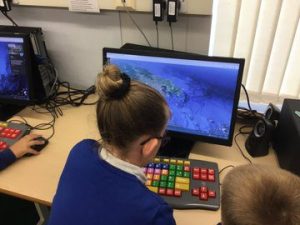
How the subject is assessed
Foundation Stage
Teachers use observations of child-initiated activities and adult led tasks to collect evidence of the level the child is currently working at. Children have the opportunity to take part in cross curricular computing tasks or work based on the fundamentals of keyboard and mouse skills, which is often annotated with their comments and levels of thinking. Observations, annotations and children’s work are used to provide a full picture of the child’s achievement and working level.
Key Stage One and Two
Assessment of pupils is an ongoing activity. Children’s knowledge and understanding is informally assessed in class and group Q & A sessions and through observation during lessons as well as in marking written work. Teachers can refer to the Computing assessment grids designed for KS1, LKS2 and UKS2. Termly assessment against the 3 areas of computing takes place in line with school assessment week and is measured against the objectives outlined in the Computing journal assessment grids.
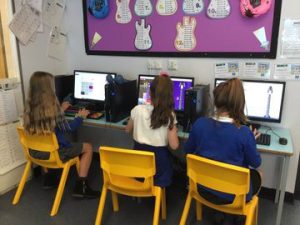
Impact
- Computing is taught across all year groups and there is a clear progression of skills being developed as children progress to Year 6.
- Children responded well to the move to online homework tasks in 2021 and have continued to use this approach. Teachers worked to develop an understanding of the software and train children to successfully use this. This is now used to deliver homework, reducing the need for homework books and also increasing the pupil’s computing skill set and ability to work across a range of Microsoft packages.
- Children in UKS2 have developed a wide and varied skill set, most specifically in MS word and PowerPoint. They are able to produce documents and use computing as a tool to demonstrate cross-curricular understanding. For example, pupils have produced excellent work on our Geography topics and continue to develop and enhance their work as their skill set grows.
- Teacher’s ability to teach computing has been developed with the upgrade of new interactive whiteboards in classrooms. Teachers mirror link iPads for immediate peer assessment of work and sharing of good practice, for example.
- Programming, coding and work on algorithms is strong is KS2. External providers work closely with school staff to deliver sessions. A legacy of delivery is ensured through staff using this as an opportunity to develop their own skills, utilising the sessions as personal CPD to ensure they are able to continue the high standards of teacher led sessions across the school year.
- The Deputy Headteacher works with local cluster schools to complete subject monitoring to share good practice on all aspects of the teaching and assessment of computing.
